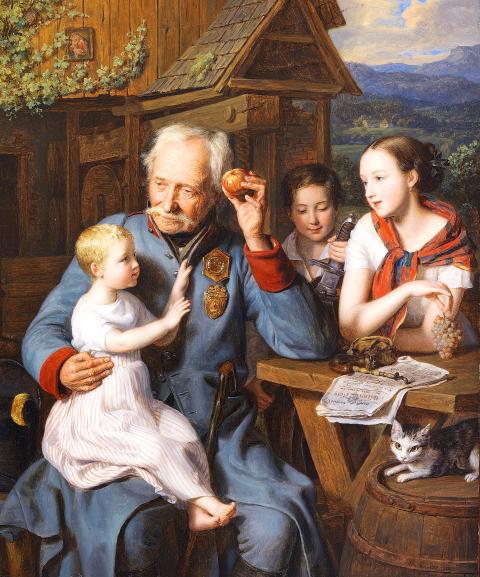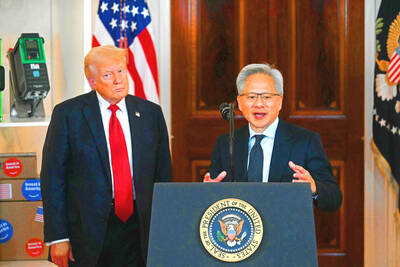Chinese Practice
三十六計,走為上策
(san1 shi2 liu4 ji4 zou3 wei2 shang4 ce4)

Photo: Wikimedia Commons
照片:維基共享資源
of the 36 Strategems, flight is the best option
上週的「活用成語」談到了稱為「三十六計」的一系列兵法計策,最早之記載見南齊王敬則將軍所說的一句話——王敬則聽說皇太子為躲避齊明帝清算而逃走後,便說:「檀公三十六策,走是上計。汝父子唯應急走耳」(檀道濟的三十六計中,最好的選擇是撤退,你們父子快逃吧。)此即為成語「三十六計,走為上策」(或作「三十六計,走為上計」)的由來,字面意思是「在三十六個計策中,逃跑是最好的選擇」,也就是說逃走並非都是懦弱的,甚至可能是最明智的選擇。
從戰場上逃走,以避免送死或己方軍隊被消滅,好讓未來可以有機會擊敗敵人——這意義無論是字面上的或比喻的,都可以用「he who fights and runs away lives to fight another day」(能戰能逃的人才能活下來,以便改日再戰)這句話體現出來。
此諺語咸認出自古希臘演說家及政治家狄摩西尼。西元前三三八年在雅典和馬其頓之間的沙洛內亞發生了一場大戰,狄摩西尼卻從戰場上開溜了。當狄摩西尼被指控為逃兵時,他回答說:「逃跑的人可以再戰。」
這個概念也在其他不同語言中出現,例如古羅馬元老院議員及歷史學家普利烏斯·科尼利厄斯·塔西佗(約西元五六~一二○年)便說:「He that fights and runs away, may turn and fight another day; but he that is in battle slain, will never rise to fight again. 」(能戰能逃的人,可轉而於他日再戰;但在戰鬥中被殺的人,永遠無法再起來戰鬥)。早期基督教神學家特土良(約西元一五五~二四○年)在其作品《De Fuga in Persecutione》(逃離迫害)(西元一九五年)中也寫道:「qui fugiebat, rursus sibi proeliabitur」(逃走的人會再來戰鬥)。
我們現今使用的現代英文說法「he who fights and runs away lives to fight another day」,最早見諸出版品是在一六五六年,由約翰‧梅內斯和詹姆士‧史密斯所編的《Musarum Deliciae》(繆思的消遣),其中有個對句寫道:「For he that fights and runs away, May live to fight another day」(能戰能逃的人方能存活下來,以便改日再戰)。該書並未註明這句話是誰說的。
「For he that fights and runs away, May live to fight another day」並沒有字面意思完全相符的中文成語,中文裡類似意義的說法,除了「三十六計,走為上計」外,還有俗語「好漢不吃眼前虧」,指聰明人能識時務,在形勢不利時,寧可暫時讓步、躲開不利的處境,以等待來日更好的機會。此語可見清‧李寶嘉的《官場現形記》第十七回:「周老爺聽了,……既而一想:『好漢不吃眼前虧,且讓他一步,再作道理。』」
(台北時報林俐凱譯)
他投下了大筆資金買進這檔股票,沒想到後來股價跌個不停,「三十六計,走為上策」,他只好忍痛認賠殺出。
(He spent a lot of money buying this stock, but then the share price plummeted. He thought it best to just sell them off quickly and take the hit.)
到了決鬥的場地,遠遠看見對方高頭大馬、來勢洶洶,我心想好漢不吃眼前虧,決定繞道而行。
(As I was approaching the place for the duel, I saw my opponent from a distance, looking imposing and up for a fight. I thought better of it, and sauntered off in another direction.)
英文練習
he who fights and runs away may live to fight another day
Last week’s Using Idioms spoke of the sanshiliu ji (Thirty-six Strategems), the title of a collection of military strategies so named due to a quote by General Wang Jingze from the Southern Qi Dynasty. Hearing that the crown prince had fled to escape a purge by Emperor Ming, Wang said, 檀公三十六策,走是上計。汝父子唯應急走耳 (“Of Lord Tan’s 36 strategems, retreat is the best option. You and your father should run.”) From this, we get the modern Chinese idiom 三十六計,走為上策 (also written as 三十六計,走為上計), literally “of the 36 Strategems, flight is the best option,” meaning that fleeing is not always the cowardly choice: It could even be the wisest.
The idea of running from the battlefield, such that one can avoid death or destruction of one’s armies and therefore have the option of trying to overcome your enemy — either literally or metaphorically — on a future occasion is encapsulated in the English idiom “he who fights and runs away lives to fight another day.”
The proverb is generally attributed to Demosthenes, an ancient Greek orator and statesman who fled a major battle at Chaeronea between Athens and Macedonia in 338BC. When accused of deserting, Demosthenes replied, in Greek, “The man who runs away may fight again.”
There are other appearances of the idea, in different languages. The Roman senator and historian Publius Cornelius Tacitus (c. 56AD — 120AD), for example, said “He that fights and runs away, may turn and fight another day; but he that is in battle slain, will never rise to fight again,” and in the 195AD work De Fuga in Persecutione (On Running from Persecution) the early Christian theologian Quintus Tertullianus (c. 155AD — 240 AD) wrote qui fugiebat, rursus sibi proeliabitur (He who flees will fight again).
The modern English version, as we use it today, was first printed in the 1656 book Musarum Deliciae (The Muses’ Recreation), edited by John Mennes and James Smith, in which the couplet “For he that fights and runs away, May live to fight another day” appears. It is not specifically attributed to any individual in the text.
Although there is no direct corollary to the proverb “he who fights and runs away may live to fight another day” in a Chinese idiom, there are a number of Chinese sayings with a similar meaning. For example, in addition to 三十六計,走為上計/策 there is also 好漢不吃眼前虧 (a wise man knows better than to fight when the odds are against him), meaning that a wise person has the discernment to sense when the tide is against them, and would prefer to withdraw from the fray for the time being and wait until such time as the situation is more favorable. This phrase derives from Chapter 17 of guanchang xianxing ji (Officialdom Unmasked) by the Qing writer Li Baojia, where he writes 周老爺聽了,……既而一想:『好漢不吃眼前虧,且讓他一步,再作道理 (Hearing this, the attache Zhou... gave it some thought, and said, ‘given the circumstances, I think it best to withdraw for now, and then reassess the situation later’).
(Paul Cooper, Taipei Times)
I think it was the right decision to withdraw from the debate. You will have your chance to fight another day.
(我覺得你決定退出這場辯論是對的,你以後會有機會反擊的。)
They knew they were hopelessly outnumbered, so they retreated. Far better to flee this time, so they could fight another day.
(他們知道己方人數遠遠不及對方,所以撤退了。這次最好先避開,待來日再戰。)

When Nvidia CEO Jensen Huang revealed on Friday last week that the company is working with the Trump administration on a new computer chip designed for sale to China, it marked the latest chapter in a long-running debate over how the US should compete with China’s technological ambitions. The reasoning has sometimes changed — with US officials citing national security, human rights or purely economic competition — but the tool has been the same: export controls, or the threat of them. Nvidia believes it can eventually reap US$50 billion from artificial intelligence (AI) chip sales in China. But it so far has

Long before numerals and arithmetic systems developed, humans relied on tally marks to count. These simple, repeated marks — often just straight lines — are one of the earliest and most widespread methods of recording numbers. Archaeological findings suggest that humans began tallying in prehistoric times. During the Late Stone Age in Africa, humans began to carve notches onto bones to create tangible records of quantities. One of the earliest known examples is the Wolf bone, an artifact unearthed in Central Europe in 1937. This bone bears notches believed to be an early form of counting. Even more intriguing

Continued from yesterday(延續自昨日) https://www.taipeitimes.com/News/lang In many Western countries, the most common form of tally marks employs a five-bar gate structure: four vertical lines followed by a diagonal slash. To form this group, one begins by drawing four parallel vertical lines, each representing one. For the fifth, draw a diagonal line across the existing four. This diagonal stroke effectively creates a distinct group of five. To continue counting, just initiate a new cycle in the same manner. A set of five tallies combined with a single vertical line next to it represents the number six. Across many Asian countries, the Chinese character

In 2024, multiple airplane accidents caused severe casualties, including a Jeju Air disaster at the year’s end. However, not all incidents ended in tragedy. Early in the year, a Japan Airlines flight caught fire after landing in Tokyo, but all 379 passengers and crew members escaped within 90 seconds. This event highlights the “golden 90 seconds” that experts emphasize — most survivors evacuate the plane within this critical window. Proper preparation ensures you can act quickly and decisively during these crucial moments when every second counts. Your survival strategy begins before takeoff. Wear long pants, a comfortable top, and